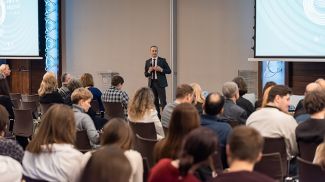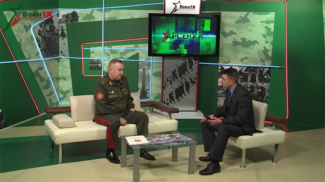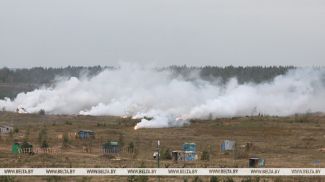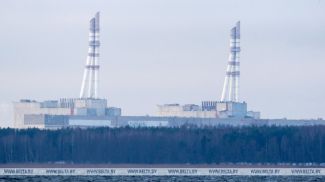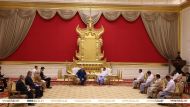MINSK, 20 July (BelTA) – A working meeting with a United Nations delegation led by United Nations' special rapporteur on the human rights of migrants Felipe Gonzalez Morales took place at the central office of the Investigative Committee of the Republic of Belarus, BelTA learned from the department of information and public relations of the Investigative Committee.
The meeting was attended by employees of the Main Investigations Directorate of the Investigative Committee, the Ministry of Foreign Affairs and the center “Sistemnaya Pravozaschita” [“Systemic Human Rights Protection”].
“The UN delegation was briefed on the progress and results of the criminal investigation of crimes against the security of mankind, propaganda of war and endangerment (Article 128, Part 1 of Article 123, Part 3 of Article 159 of the Criminal Code of the Republic of Belarus). The investigators are looking into the illegal actions of officials and other persons from Poland, like deportation, acts of cruelty, torture, deliberate failure to provide help resulting in the death of victims. The victims are refugees from the Middle East and Afghanistan who were subjected to mistreatment based on their race, nationality, ethnicity and religion when crossing the state border of Poland with the aim to get to Germany,” the Investigative Committee informed.
According to the Investigative Committee, the investigation of the criminal case revealed numerous violations by representatives of the Polish side of the Convention Relating to the Status of Refugees as of 28 July 1951, as well as repeated non-compliance with the International Covenant on Civil and Political Rights as of 16 December 1966.
Belarusian investigators documented criminal acts committed against 149 refugees who sought medical help. Of the total number of victims 28 were women and 22 were minors (of whom 17 were under the age of 14).
The UN delegation was told about the investigation into mass executions, secret burials of murdered refugees by the Polish military on the border territory of Poland based on the information received from Polish soldier Emil Czeczko.




